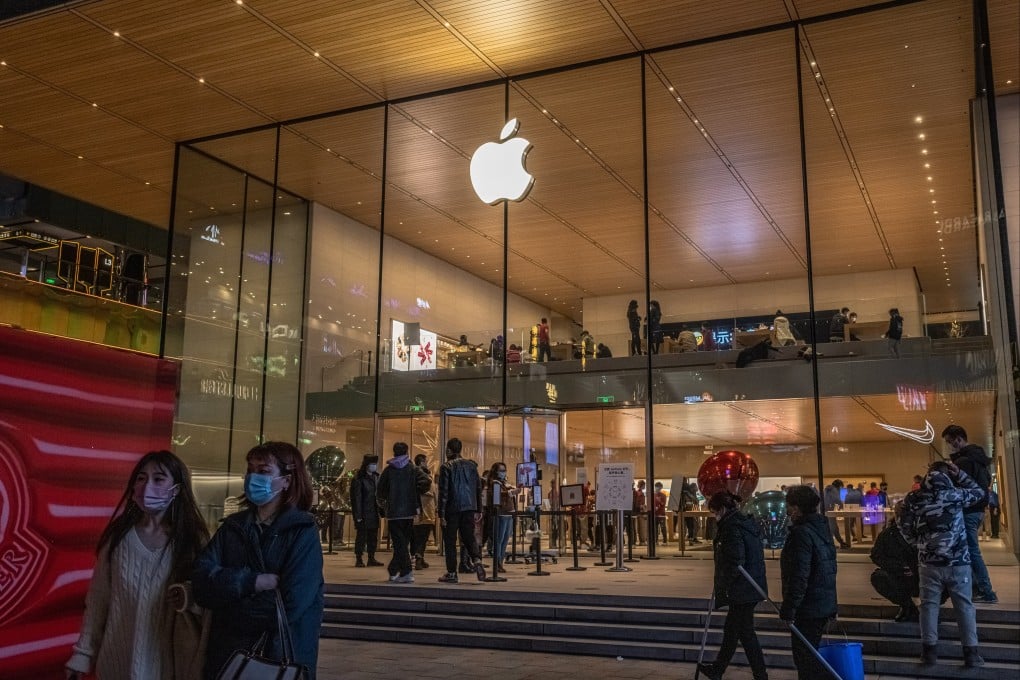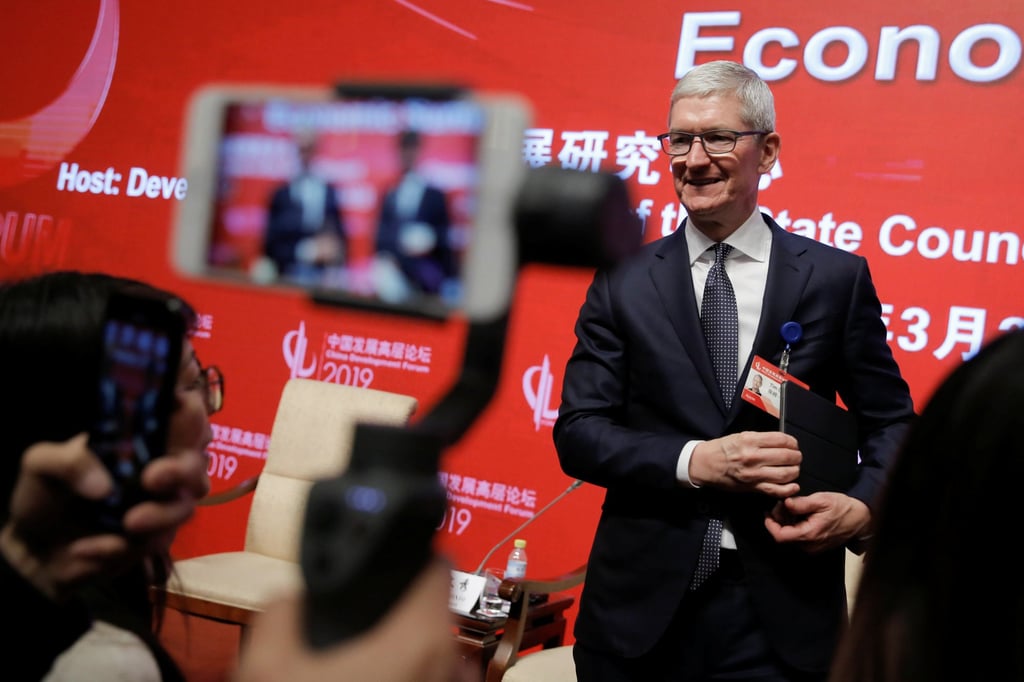Apple’s reported US$275 billion China investment questioned by state media after report of Tim Cook’s lobbying
- A report about Apple CEO Tim Cook personally lobbying for favoured treatment in China has been downplayed by state media, which questioned the amount invested
- After Cook met with Chinese politicians in 2016, Apple invested in Didi Chuxing, moved iCloud operations to China, and partnered with Tsinghua University

Apple is facing fresh scrutiny in the US after The Information reported on Tuesday that CEO Tim Cook personally lobbied Chinese officials, securing a secretive deal involving the company investing in the country as part of concessions to Chinese regulators.
The promised investment included using more components from Chinese suppliers, signing deals with Chinese software companies, collaborating with Chinese universities in research and development and investing directly in Chinese tech firms, according to The Information, citing internal documents and interviews.

A commentary published on the WeChat blog Buyidao, operated by the state-run tabloid Global Times, defended the investments. The attack on Apple’s ties to China are “clearly driven by the ‘political correctness’ of Sinophobia”, according to the article.
“Forcing American companies to decouple from China is forcing them to decouple from opportunities and gains,” the article reads. “This is as good as McCarthyism for business.”
The article, which has spread widely within China’s tightly controlled cyberspace, also raised questions about the US$275 billion figure, arguing that such a large amount of spending would have attracted more attention from news media and the public over the past five years.
Shortly after lobbying Chinese officials in 2016, Apple invested US$1 billion in Chinese ride-hailing giant Didi Chuxing. It has also set up research and development centres with Chinese partners, including the country’s prestigious Tsinghua University, moved iCloud operations for local users to China, where it now stores encryption keys for those users, and opened 11 additional retail stores, The Information reported.